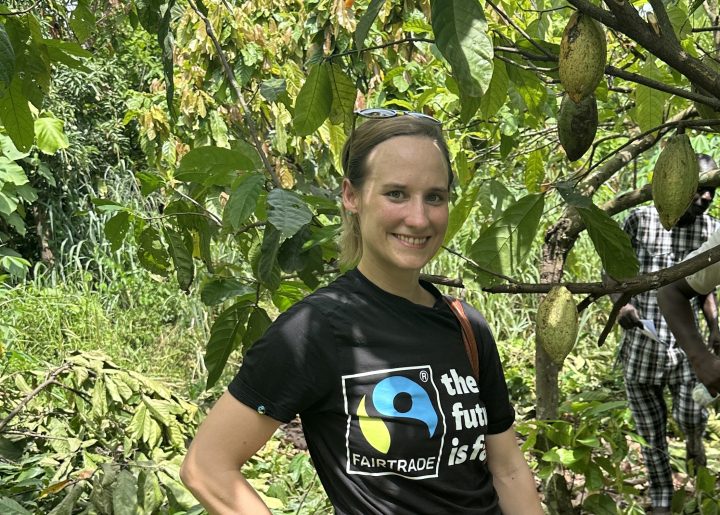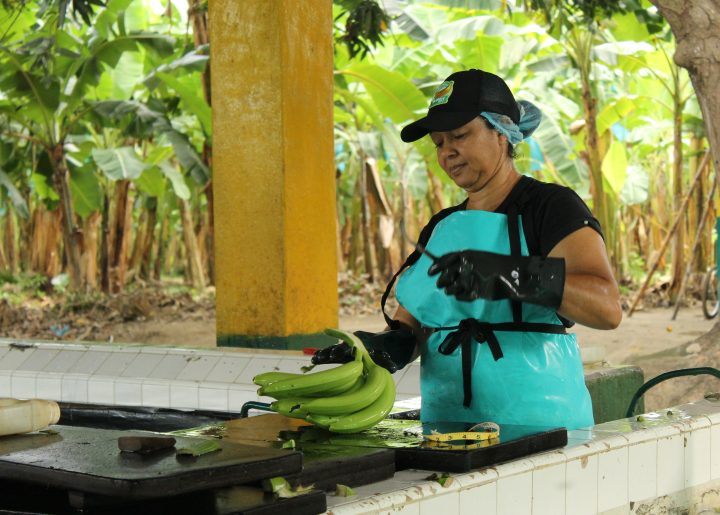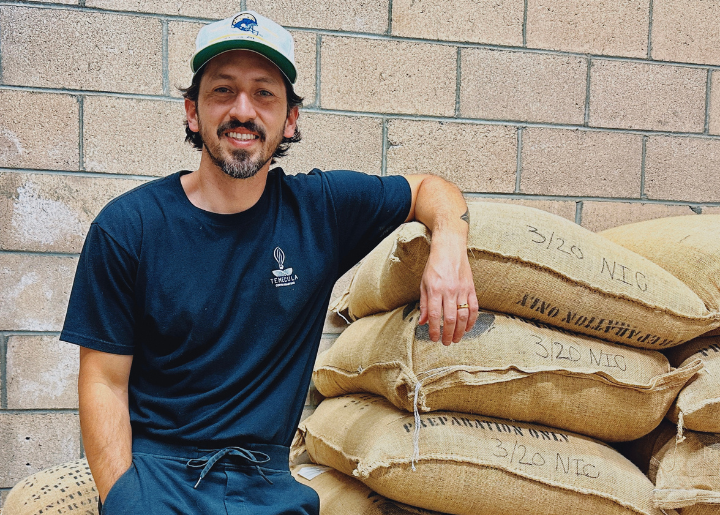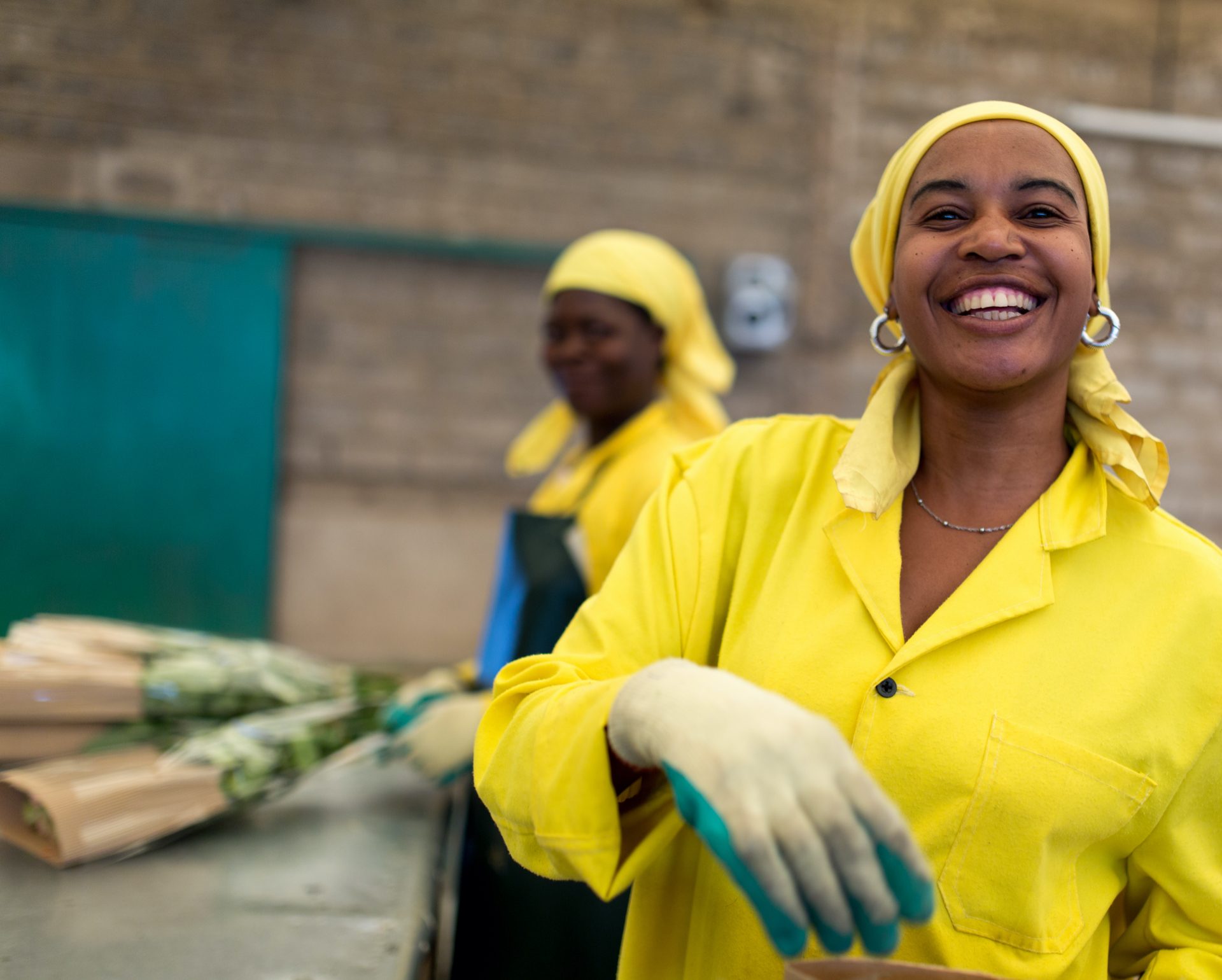Inspiration in the Andes
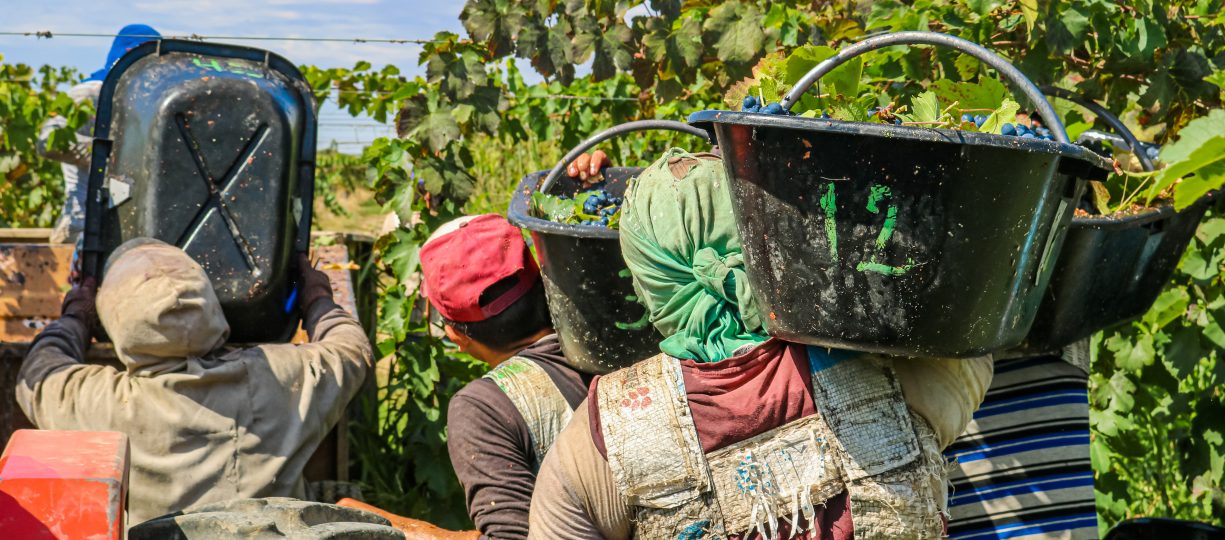
For the smallscale farmers of Riojana growing grapes in the shadow of the Andes, Fairtrade is much more than a better price and Premium, it’s a way of life. Export Director Walter Carol of La Riojana Cooperative of wine grape growers discusses how Fairtrade has changed the perspectives of these small-scale farmers and their communities. Fairtrade certified wines from La Riojana recently arrived on store shelves in the US.
I would love to say that fair trade is not necessary in our world today, but unfortunately, it is. . .
Thinking of Fairtrade as a tool to end poverty may be too ambitious; rather it should be seen as a response to the global market from small-scale farmers who are trying to transcend a life of mere subsistence. Battling poverty requires deep solutions that go beyond just trade.
Fairtrade is not a charity. We, the Fairtrade certified farmers of Riojana, do not want or ask for it either. Fairtrade brings dignity to our work… evens out opportunities… provides opportunities.
For us Fairtrade means looking forward; it shows us that we are able to make a change. Fairtrade has given us the space to share the fruits of our labor in a more fair way. It reveals the reality hidden behind the costly packaging of premium wines or fine chocolates on store shelves.
Fairtrade doesn’t mean just paying the minimum price and cleansing the conscience of shoppers; there is much more to it. It is about balance, sustainability, and long-term goals; it is about a more harmonious future.
In 1939, in the province of La Rioja, Argentina, small-scale farmers began to work together and organize themselves as a cooperative. We eventually became the first Argentine winery to be Fairtrade certified.
Tilimuqui is a small, isolated village in the middle of a desert. As of 2006, Tilimuqui’s homes did not have access to running water. They only had an extremely underfunded primary school, and virtually no access to healthcare services of any kind.
Less than 10 years later, a drinking water network was built thanks to Fairtrade Premium funds. Between 2009 and 2014, we built the finest agro-technical secondary school in the region, and – as I like to call it, “the Fairtrade collateral effect” – the provincial government invested in and improved the primary school.
See a full overview of all the projects that La Riojana Cooperative has achieved.
In just 10 years, Fairtrade has had a powerful impact on real people, on their fates, on entire communities. It has been a lighthouse that has shone on a new path.
Recently, we broke ground to build a clinic in the Tilimuqui area with the Fairtrade Premium we saved and our existing client partners. This new clinic will offer healthcare services to more than 10,000 people.
We also seek to improve our businesses. As part of a program we started with regional cooperatives in the US, we aim to help 100 percent of our small growers achieve organic certification. This will have a great impact, not only on the environment, but also on the social and economic spheres, as well as on each and every family.
La Riojana is already 100% Fairtrade certified and in 5 to 10 years’ time, we project being 100% organic certified.
La Riojana Cooperativa, which has around 500 members– most of them small-scale producers with less than three hectares (10 acres) of land – now has the capacity to enter international markets; the blue and green FAIRTRADE Mark has brought us recognition and distinction on the shelves. Without it our wine may have gone unnoticed and, most probably, put us at a disadvantage against powerful multinational groups. Without it, our wine would likely be condemned to the bulk business that treats wine as a commodity, limiting us to living for mere subsistence.
The Fairtrade Minimum Price is a fair base price that meets assures that we can negotiate a price that is higher than the market price, and that in free-competition conditions, acts as a safety net protecting small-scale growers in volatile markets. And while not a perfect tool, it is just one of many ways that Fairtrade balances out the interests of buyers and sellers.
There is still a lot of growing to do at La Riojana, but the truth is that cooperative associations, like ours, have experienced a resurrection and a recovery of their lost identity. Cooperative businesses have found, in Fairtrade, a strength to resist the tyranny of a system that functions on accumulation of power, a system ruled by ambition and selfishness. Our growers have found a means of livelihood and shelter, and still more important, they are able to do what they were meant to do.
We may speculate whether consumers or retailers must decide that Fairtrade is important. But it is like question of the chicken or the egg? It is irrelevant. The success of Fairtrade lies in the fact that a growing number of people have become interested in the story behind the labels…a growing number of people understand that there are real people behind a product, who are able to look forward when they have what they need to invest in their own forgotten communities. Basic needs satisfied, running water, education, health…these are the promises of future decent work.
The day Fairtrade is no longer necessary or important is the day that Fairtrade will have won. On that day we will all be Fairtrade!
We’re in this together
Fairtrade America partners with brands on the journey to certification and beyond. We can help with everything from finding a certified supply chain to marketing your newly certified product.
Get in Touch
